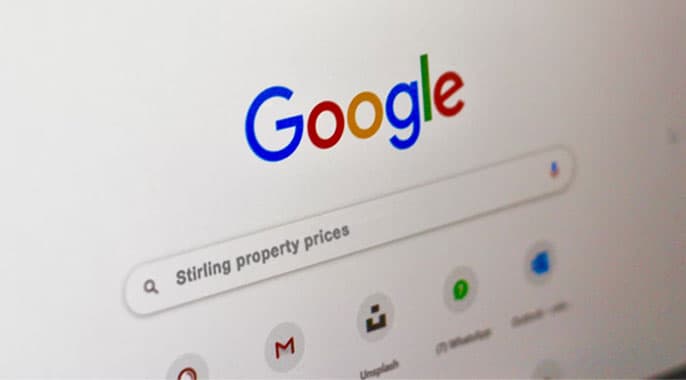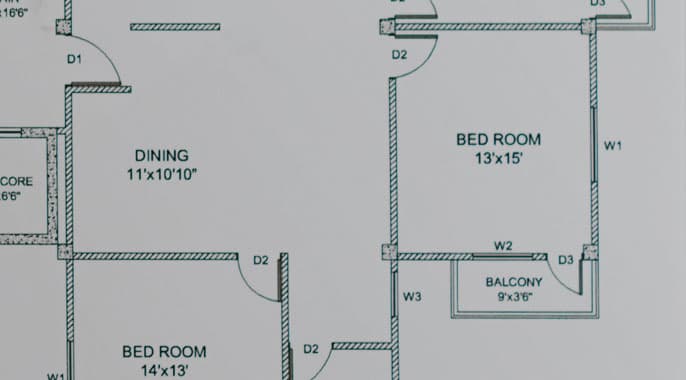If selling your house is one of the most stressful events that life can throw at you, then choosing the people who are going help you through that process deserves serious thought and consideration.
In the vast majority of cases, you will appoint an estate agent to help you sell your house and a solicitor or conveyancer to deal with the essential legal aspects related to the transfer of money and property. You may also deal with a mortgage adviser and a surveyor as part of the process.
In Scotland, the process is slightly different from the way things are done in the rest of the UK. For example, a buyer needs a solicitor to put in an offer on a property and the seller needs a surveyor to prepare a Home Report before the property can go on the market. We will be referring to the Scottish version throughout this blog post.
A large part of the job of an effective estate agent will involve ensuring that you understand exactly how the process works from the moment you decide you might want to put your property on the market. They are the people you will have the most dealings with are the estate agents, and they should be able to recommend solicitors, surveyors, and mortgage advisers.

The over-arching role of an estate agent is to represent the property seller, from advising them on the value of their property, to promoting it to prospective buyers, arranging viewings and liaising with buyers and other parties to ensure that the sale takes place.
When it comes to minimising the stress you go through when selling your house it’s pretty difficult to overstate the importance of getting the choice of estate agent right.
Although working your way through the multitude of estate agents keen to provide their services is a daunting prospect, the equation is ultimately relatively simple; the right estate agent will work with you to ensure you get the best price for your property in the shortest time frame. They’ll deliver this, what’s more, while keeping the hassle you have to go through to an absolute minimum.
‘Hassle’ may not seem like a very technical term to use in a blog like this but take it from us (and anyone who’s ever had to sell a property), it’s exactly what sellers go through – admin, paperwork, time and effort devoted to the massive amount of bureaucracy attached to selling a property. Make the right choice of estate agent, and you’ll get so much closer to a genuinely hassle-free experience.
Ask!
A lot of the advice pertaining to making the right choice of estate agent boils down to a single word, and that word is ‘ask’. More precisely, don’t be afraid or embarrassed to ask questions of any prospective estate agent, and never assume that you can take things such as the detail of the level of services provided by an estate agent for granted. There’s no such thing as a silly question to ask an estate agent, in other words, and the right estate agent will be one who welcomes any questions you might have, as providing answers will give them a chance to showcase what they offer.
What Essential Attributes Are You Looking For?
Again, before going into specifics we’ll generalise by listing the three key attributes you’re looking for when choosing the right estate agent for you:
Potential Buyers – look for an estate agent that sells plenty of properties which are similar to yours – whether that’s detached rural properties, city centre loft apartments or bungalows – this means it’s more likely they’ll instantly be able to call upon lists and details of buyers interested in exactly that type of property. At best, the right estate agent will be in a position to start thinking about potential buyers as soon as they take a look at your property.
A Proactive Approach – make sure that the estate agent is willing to put in the work to reach out to prospective buyers – through a range of channels – to make sure they find out about your property. They should also be equally keen to persuade anyone who shows an interest, of the merits of your property, i.e. by chasing up potential buyers after viewings and initial enquiries. Make sure that the estate agent, although busy enough to demonstrate their popularity with buyers and sellers in general, still has the capacity to devote enough time to proactively seeking out interested parties and getting the best price for your property.
Marketing Skills – we’ve already mentioned the importance of asking prospective estate agents as many questions as you can, but when it comes to assessing their marketing skills a full-blown interview is going to be needed. Only by talking to an estate agent at length will you get a feel for how they present themselves and whether they give the impression of being sincere, truthful and knowledgeable. It may seem harsh to rule out working with an estate agent because you don’t get the right ‘feeling’ when you talk to them, but, like so many aspects of selling your home – such as determining the right asking price – choosing the right estate agent is an art as much as a science. Put yourself in the position of a prospective buyer and ascertain whether an estate agent has sufficient local knowledge to sell your property and is able to ‘sell’ their own services without resorting to hyperbole or high-pressure rhetoric.
Do your Research
Make sure you take the time to research any estate agent you might be thinking of using in order to ascertain what kind of reputation they have and whether there is a verifiable track record of successful transactions – particularly of properties similar to yours – which they’d be able to point to. An effective, and simple, starting point is to ask around family, friends and neighbours about any local estate agents they might have used, and whether they’d recommend doing so. If you see someone moving into a property close to yours don’t be afraid to ask which estate agent they used to sell their previous property, whether it was a relatively local estate agent, and how they found the experience.
Check Their Website!
It goes without saying but we’ll say it anyway – as well as asking around in person you can get online to look up local estate agents. Their website should look like they mean business and have their finger on the pulse. You can also gauge the feedback they’ve received from clients via reviews. Look for those estate agents who have a large number of reviews but have still managed to maintain a high average star rating – this is an indication of consistently excellent services across the board.
Credentials
One of the key questions to ask is whether your prospective estate agent is a member of one or more of the relevant professional bodies. Membership of organisations such as ARLA Propertymark (which deals with the private rented sector), The Property Ombudsman and the Royal Institution of Chartered Surveyors is not a legal requirement for estate agents, although those engaging in residential work (i.e. managing the letting of properties) have to belong to an approved redress scheme. The fact that an estate agent has taken the time to apply for membership of organisations such as these, or others including the Guild of Property Professionals or the National Association of Estate Agents, is an indication of their adherence to the strict code of conduct membership will involve, as well as a wider commitment to professional development and delivering excellence.
Local Knowledge
The idea that few things matter more to the value of a property than its location is one of those annoying clichés which has become an annoying cliché because it happens to be almost entirely accurate. The ability of your estate agent to successfully handle the sale of your property is therefore highly dependent upon their knowledge of the area in which the property is based and the local property market in particular. Find out what they can tell you – without having to go away and Google anything – about local property prices, movement across the market for properties such as yours and how any national trends are likely to impact your chances of making a sale.
As well as understanding the particulars of the local housing market, an estate agent should have in-depth knowledge of the location in general, including details such as local schools, amenities like doctors and dentists, transport links and any planning applications currently working their way through the system which could potentially impact on property valuations. At O’Malley Property, all the team members in our Alloa and Stirling offices live in the local area and have grown up here, and so there isn’t much they don’t know about this part of Scotland.
Remember that prospective buyers are likely to be asking them the same kind of questions and expecting quick and comprehensive answers, so it’s vital that your chosen estate agent has the information at their fingertips.
Communication
The value of asking questions of a potential estate agent and interviewing them in depth isn’t just about the information you’ll glean by doing so. It also means that you’ll be able to gauge the communication skills they will bring to the task of selling your property. You should also make sure that the estate agent you deal with will be accessible and available to answer any questions you might have as and when you need them to be. Ensure that you’ll be able to contact them by phone, email or digital messaging when you need to, and also to have face-to-face meetings when required. When dealing with a bigger agency, ask if you’ll have a single point of contact responsible for your property.
Marketing
Make sure you understand exactly what the estate agent will do in order to market your property effectively. Ensure that they’ll be utilising all of the tools available including online listing, advertising, professional photographs, floor plans and virtual tours. Does the estate agent have a strong social media presence, and will this be used to play a role in putting your property in front of as many potential purchasers as possible? As ever, don’t be afraid to ask.
Fees
Find out exactly how much the estate agent is going to cost you. They’ll charge a fee for selling your property, with traditional agencies generally opting for charging a percentage of the selling price and online agencies often offering a fixed fee. Make sure to ascertain exactly what is included in the fees and charges they mention, and whether there are any additional charges likely to be imposed.
In many cases, particularly if the property you’re selling is at the higher end of the price range, the estate agent is likely to be willing to negotiate the precise details of the fees and charges they impose. The exact fee could differ depending upon whether you opt for a sole estate agent or multiple agents. We’ll discuss the pros and cons of each in time but, in terms of fees, the amount charged may be a lower percentage if just a single agency is handling the sale, while multiple agencies might charge higher fees to compensate for the risk involved in working in competition with other estate agents.
When you’re negotiating the fee to be charged, you have to remember that the percentage quoted is only one part of the equation – if one estate agent quotes a higher percentage fee than another, but is able to fetch a better price for the property when it actually sells, then you’ll ultimately end up with more money in your bank account despite paying a higher fee.
According to website TheAdvisory, the average estate agent fee in the UK – when dealing with a sole agent scenario – is currently 1.18% plus VAT or 1.42% including VAT, which equates to a fee of £4047 for selling a property at the price of £285,000.
Terms
When asking about fees and negotiating you need to be certain exactly what the terms of the contract between you and your estate agent are. In some cases, for example, the contract might include a sole-agency lock-in period, which will stop you from switching to another estate agent for a specified period of time if things go wrong. Some contracts also include sole selling rights for a specific period of time, and this means that even if you find your own buyer during this period, the estate agent will have to be paid.
The other aspect of the contract which needs careful monitoring is exactly what you’ll be getting in return for the fee being charged, and what might incur an extra cost. The details vary from estate agent to estate agent, but the minimum you should be looking for is the following:
- A valuation of the property, based on existing sales data, knowledge of the local market and an understanding of wider trends
- The creation of floor plans
- Professional photography of the property
- The creation of a written description of the property which is accurate and appealing
- Working with their list of existing parties likely to be interested in buying your property
- Marketing the property via online portals such as Rightmove and Zoopla, as well as through means such as the window of any offices they operate from, and newspaper advertisements
- Organising and managing viewings of the property
- Negotiating the sale price of the property
The contract should list the fee to be charged as an actual amount based on the agreed asking price, but you need to bear in mind that the actual selling price – and thus the commission payable – may differ.
You should always ask questions designed to ensure that the fees cover everything you expect them to cover, as well as making sure that there are no ‘withdrawal fees’, the name given to a charge made if you ultimately change your mind and decide not to sell your property.
Valuations
The link between fees and valuations is a reminder that, when it comes to having your property valued, you should ask at least three estate agents to give you a valuation. You should already have done some research to look at the selling price of similar properties recently sold in the same area, but the estate agents will offer their expert opinions of how much the property is worth. The answers given can vary widely, so take the time to ask each estate agent exactly how they arrived at the figure quoted, and whether there is anything you could do to lift their valuation. If the sale needs to go through quickly due to a factor such as relocating for a new job or a change in family circumstances, make sure each estate agent knows this, as the need for a quick sale could impact on their idea of a sensible asking price. Resist the temptation to simply opt for the highest valuation, as an over-valued property could prove to be difficult to shift.
Sole or Multiple Agents
A sole agent means just what it says on the tin – one agent with the right to sell your property, and this will usually be reflected in the contract you sign having an exclusivity period of something like 12 weeks. Alternatively, you could ask multiple agents to compete with each other to sell your property, with only the successful agent able to charge a fee, and a position somewhere between the two involves ‘joint sole agents’ co-operating to sell the property with each taking a percentage of the fee (and more going to the estate agent able to secure the sale).
Sole Agent Pros
- The estate agent is likely to accept a lower fee due to the lack of competition
- Working with just one estate agent makes the whole process much simpler in terms of communication and co-ordinating things like viewings
Sole Agent Cons
- Working with one estate agent may mean the sale takes longer, particularly given the list of potential buyers each agent might be able to bring to the table
- You have to work with the sole estate agent for as long as the contract stipulates
Multiple Agent Pros
- The competitive aspect means you may sell your property more quickly
- Each estate agent will bring their own list of possible potential buyers
Multiple Agent Cons
- The fees charged by an agent in a multiple-agent scenario are likely to be higher, due to the risk involved. You need to weigh up the advantages of a higher price or quicker sale with the cost of higher commission.
- It can be more complex in terms of logistics to have to liaise with multiple estate agents
- The estate agents may try to persuade you to accept a lower offer in order to ensure that they complete the sale for you
Connection
Ultimately, despite the multiple complex factors detailed above, the choice of estate agent may well come down to your gut instinct, and how much of a connection you feel with the people you talk to. The estate agent in question is a person or business you’re going to have to work with through what can be a high-pressure process, and this is likely to be more successful and even enjoyable if you find yourself sharing a set of values and an ethos with them. At O’Malley, for example, we pride ourselves in taking a keen interest in green issues, being based in Alloa and Stirling, which are surrounded by beautiful hills and forests. We want to play a part in keeping Scotland beautiful through our Green Initiative, and we know that local people – whether it’s the volunteers of the Alloa in Bloom project, the young pupils working toward sustainability and picking litter or the Stirling University students on the Young Pathfinders Programme – share that ambition. Joined-up, person-centred thinking of this kind informs everything we do and we like to think it plays a huge part in persuading people to trust us with the responsibility of helping to sell their home.



